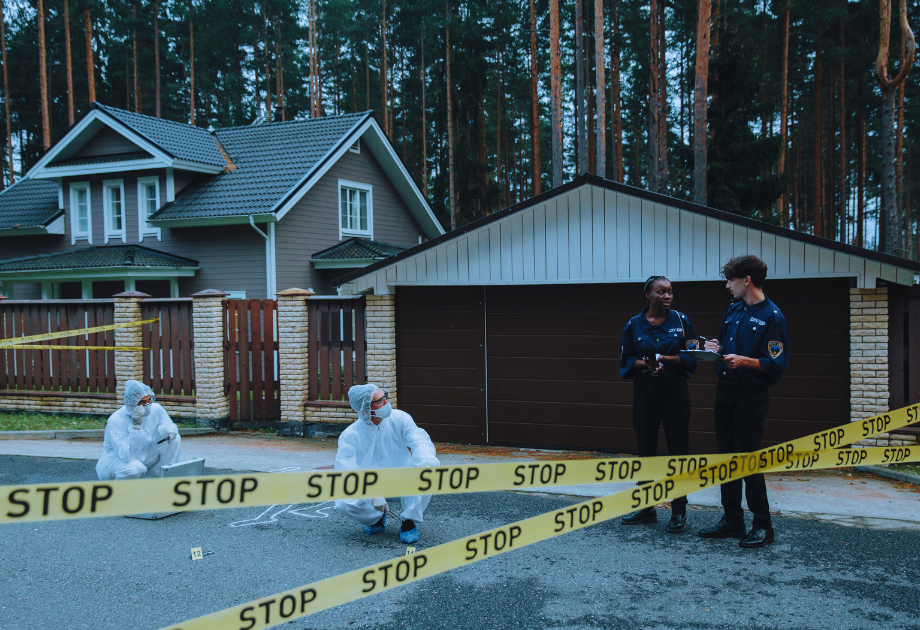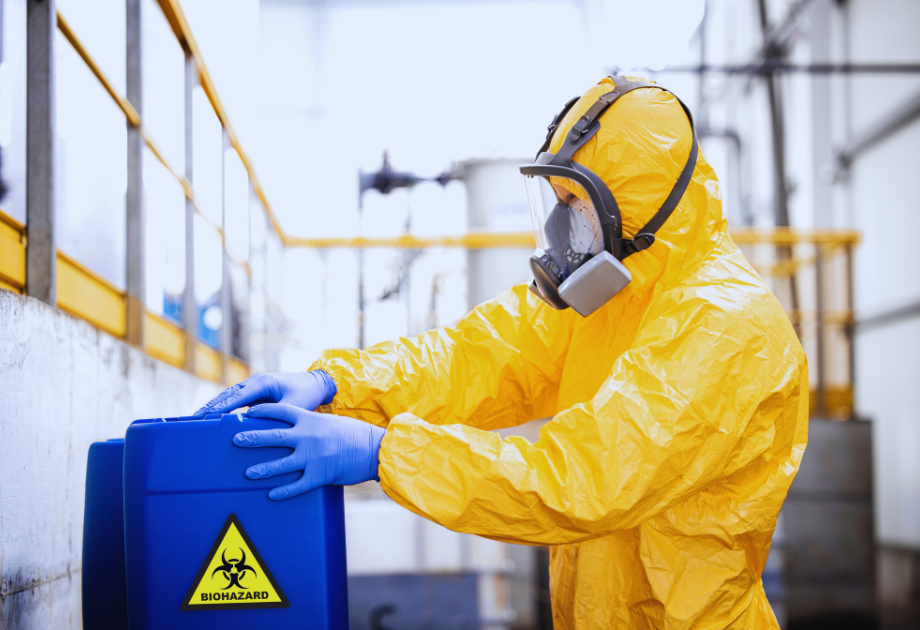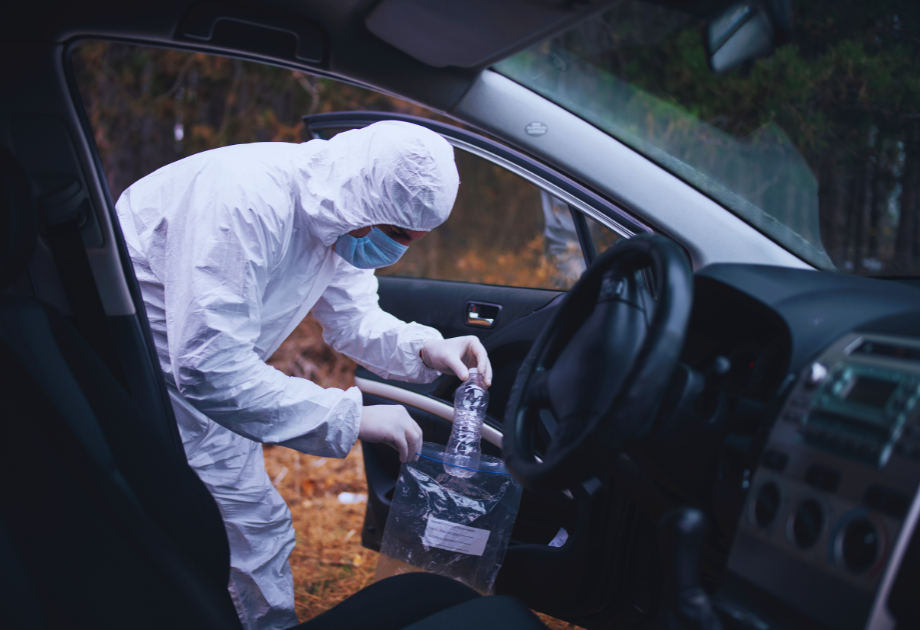Ten Questions You?ve Always Wanted to Ask a Crime Scene Cleanup Worker

Content Warning: This blog contains discussions about the aftermath of traumatic events, including death, suicide, and other sensitive situations. The purpose is to educate readers curious about the work done by professional crime scene cleaners and the realities of this challenging profession.
Curiosity about the gritty details of crime scene cleanup is only natural—many people find themselves intrigued by the morbid side of life and the professionals who restore hazardous spaces to safety.
From handling biohazard cleanup to working alongside law enforcement, crime scene cleaners tackle some of the most difficult jobs imaginable. Here, we’ve gathered ten of the most frequently asked questions — from the morbidly curious to the clinically-minded. Let’s dive in.

The Straight Facts About Crime Scene Cleanup
1. How Is a Crime Scene Cleanup Company Different from a Standard Cleaning Company?
Crime scene cleaners don’t just come in with a mop and a dust rag—they’re specialists trained to tackle hazards and biohazards, which is why they need specific certifications and extensive training. From understanding bloodborne pathogens to handling biohazardous waste, crime scene cleaners go through OSHA-compliant training to ensure they know how to make a space safe again. Unlike standard cleaners, who focus on surface-level messes, crime scene cleanup professionals use specialized tools like UV lights and chemical tests to detect anything dangerous that might be invisible to the naked eye. They’re also prepared to work with law enforcement, staying out of the way during investigations and then carefully restoring the site afterward. Crime scene cleanup isn’t about tidying up—it’s about transforming a potentially dangerous environment into one that’s truly safe and habitable.
2. Are Crime Scene Cleaners Considered Members of Law Enforcement?
Though they often work alongside police, crime scene cleaners are not law enforcement. Typically, they arrive on the scene only after investigators have finished gathering evidence. The work of a crime scene cleanup company is to restore the space to a safe, habitable condition once law enforcement has done its part. Think of these professionals as a bridge between the legal process and a return to normalcy, taking over once the detectives and forensic experts have completed their work.
3. Does Insurance Cover Crime Scene Cleanup?
In many cases, homeowners’ or business insurance may cover the cost of death cleanup services, but policies vary widely. Factors such as the cause of death, type of biohazard, and specific policy details play a role in determining coverage. Checking with your insurance provider can clarify whether the costs of aftermath services are covered in your situation.
.png)
4. What Are the Job Requirements for Becoming a Crime Scene Cleaner?
This field demands both mental resilience and physical stamina. Crime scene cleanup jobs involve rigorous training to safely handle and dispose of biohazardous materials, with workers required to earn certifications in areas like bloodborne pathogen handling, chemical spill containment, and biohazard disposal. Every cleaner is trained in strict OSHA and EPA health and safety standards, ensuring they can manage risks such as bloodborne pathogens, airborne contaminants, and even structural hazards. Physically, crime scene cleaners often spend hours in protective gear, handling heavy equipment or removing contaminated materials. Emotionally, they must maintain composure and professionalism in environments others might find overwhelming. According to ZipRecruiter, the average crime scene cleanup employment salary is over $60,000 per year in the United States, and it seems like every penny is well-earned.
5. Why Is Professional Crime Scene Cleaning Necessary?
When homeowners or property managers try to take on this task alone, they risk exposure to biohazards like bloodborne pathogens or bacteria left behind after decomposition. Without the right equipment and disinfectants, even a seemingly thorough cleaning might leave behind unseen dangers. For example, bodily fluids can seep into flooring, drywall, or furniture, contaminating areas that are hard to reach without specialized tools. Professionals not only clean and disinfect but also know how to contain and dispose of these hazardous materials safely, using industrial-grade cleaners and techniques that are designed for the job. In short, it’s not just about removing stains; it’s about making sure every trace of danger is gone, so no one else’s health is put at risk.

Questions to Satisfy Your Morbid Curiosity, Answered by Our Company’s Owner
6. What’s the Worst Thing You’ve Ever Seen?
Some of the toughest scenes I’ve handled involve decomposition, especially in extreme conditions. One case that stands out was a gentleman who had passed away at home during a summer heatwave with no AC. By the time I arrived, a lot of fluids had seeped through the floor and into the basement, and while the body had been removed, skin cells and other remnants were still there. Identification of the body was challenging, even for the coroner, which really underscored how powerful environmental factors can be when it comes to decomposition.
7. Do You Ever Get Used to the Smell?
Getting used to the smell isn’t something that happens in this line of work, but adapting to it is just part of the job. Wearing a respirator helps filter out the worst of it, and PPE does provide a layer of protection. However, it’s actually important to keep a bit of that sense of smell intact; certain lingering odors can signal areas that still need further cleaning. Decomposition, for instance, has a specific scent that can linger in fabrics and seep into porous surfaces like wood and drywall. Tracking down these odors ensures we find and thoroughly sanitize every contaminated spot, no matter how small.
8. Have You Ever Found Anything the Police Missed?
Yes, it happens. On one job, I came across a gun that had been overlooked, and whenever something like that is discovered, the protocol is to stop immediately and call the person in charge of the scene. There have even been cases where we found brain matter in rooms separate from the primary scene. It’s a reminder of how important thoroughness is in this job, and also of the unpredictable nature of the work.

9. What Happens When Someone Dies in a Small, Enclosed Space Like a Car?
Cleaning up in tight spaces like cars presents a whole new level of challenge. Decomposition in an enclosed space can quickly saturate the upholstery, air vents, and even electrical components. A good example is the MythBusters episode where they left a pig carcass in a car to test cleanup methods. Even professional cleaners like me struggled to remove the odors entirely. In real life, we sometimes have to dismantle parts of the car to reach every area and neutralize the lingering biohazards.
10. How Do You Deal with Scenes of Violent Suicides or Homicides?
Handling scenes of violent incidents requires both emotional control and technical skill. Blood, body parts, and brain matter can be difficult to clean up, not just because of the biohazard risk but because of the emotional toll. Staying professional in these situations is key. I focus on the task at hand and make sure that every area is thoroughly cleaned, but there’s no denying that this part of the job is challenging. Knowing that my work makes these spaces safe for others helps me stay focused.
Crime Scene Cleanup Is More Than a Job, and Faith Environmental Crime Scene Cleanup is Up to the Task
Working as a crime scene cleaner is not for the faint of heart. Every case brings unique challenges, from the physical demands of biohazard removal to the emotional impact of dealing with tragic situations. Faith Environmental Crime Scene Cleanup is dedicated to providing the expertise, compassion, and professionalism needed to restore spaces after traumatic events. It’s a role that goes beyond cleaning—it’s about helping individuals and communities move forward safely, knowing their environment has been carefully restored.
Contact us today to learn more about how we can help you recover the safety and cleanliness of your space.
Happy with the Faith Environmental Crime Scene Cleanup difference? Leave us a five-star review here!

